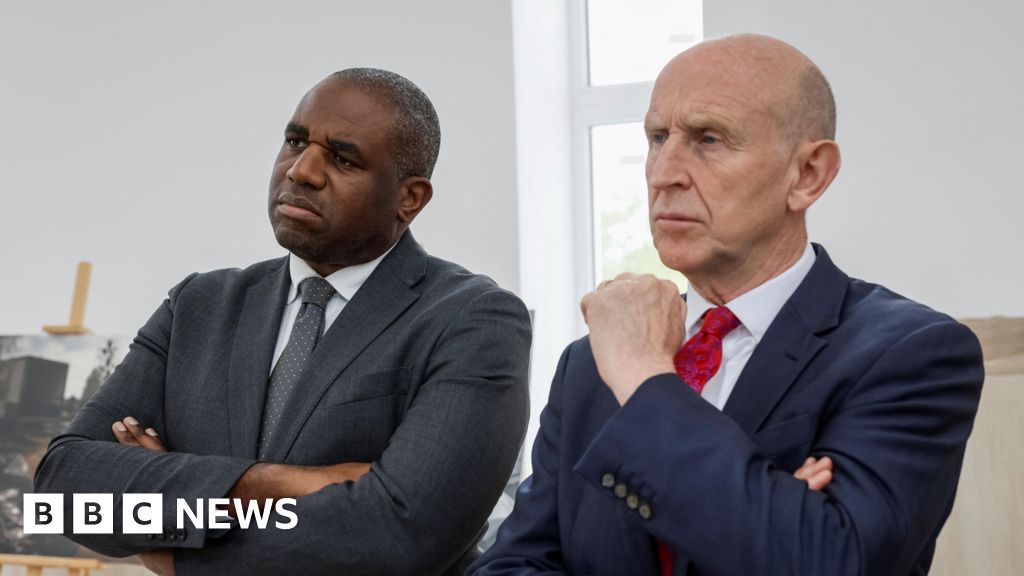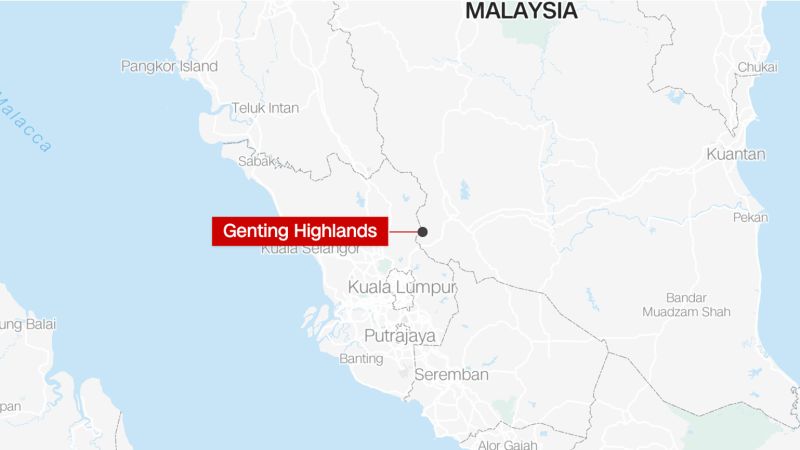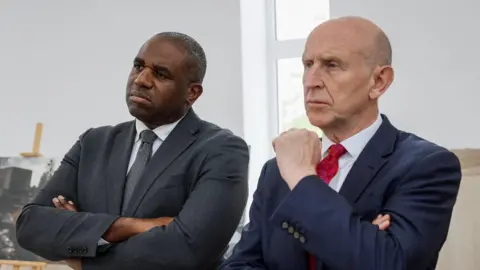 Reuters
ReutersThe UK and EU must work together and “do more” to “share the burden” of security across Europe, two senior ministers have said.
Foreign Secretary David Lammy and Defence Secretary John Healey added that the West had done too little in the past when Russia first invaded Ukraine in 2014.
In an article for The Telegraph, they said the UK had committed an additional £150m towards military aid for Ukraine as well as new sanctions on people close to Russian President Vladimir Putin.
Their comments come after the US Vice-President, JD Vance, told the Munich Security Conference on Friday that Europe must “step up in a big way to provide for its own defence”.
In his address, Vance said it was his belief that the greatest threat facing Europe was not from Russia or China but “from within”.
He said many European governments, including the UK’s, had retreated from their values and ignored issues like migration and free speech.
Lammy is due to speak as part of a “townhall” meeting on Ukraine at the summit later on Saturday, and will also take part in a panel discussion on European security.
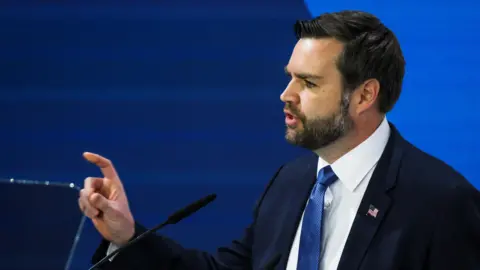 Reuters
ReutersThe comments by Lammy and Healey focused on external threats.
The ministers said: “From opposition and in government, we have been clear that Europe and the UK must do more together to share the burden of our continent’s security.”
They added that the West’s response to Russia’s invasion of Georgia in 2008 and Ukraine in 2014 had been inadequate and that “Putin only responds to strength”.
They said that for two decades the Russian leader had been “seeking to recreate the Russian empire and suffocate the countries around its borders”.
They wrote that the UK, US and Europe were united in achieving a lasting peace in Ukraine, which should be sovereign and prosperous.
Meeting Vance on Friday, Ukrainian President Volodymyr Zelensky said he wanted “security guarantees” ahead of planned peace talks between the US and Russia.
US President Donald Trump said he had spoken to Putin on Wednesday and agreed to “work together, very closely” to bring an end to the war in Ukraine. It has been nearly three years since Russia invaded.
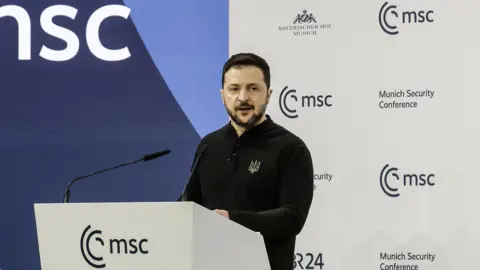 EPA-EFE/REX/Shutterstock
EPA-EFE/REX/ShutterstockZelensky has proposed what he described as an “army of Europe” to secure the continent.
He told the conference on Saturday: “As we fight this war and lay the groundwork for peace and security, we must build the armed forces of Europe so that Europe’s future depends only on Europeans, and decisions about Europe are made in Europe.”
He added: “Europe needs a single voice, not a dozen different ones.”
Among the other possible security guarantees is the deployment of a peacekeeping mission to Ukraine.
Lord Dannatt, who was head of the British army from 2006 to 2009, said about 100,000 soldiers would be needed for such a mission and that the UK might need to contribute 40,000 of them.
“We just haven’t got that number available,” he told the BBC Radio 4’s The Week in Westminster.
“Our military is so run down at the present moment, numerically and as far as capability and equipment is concerned, it would potentially be quite embarrassing.”
Sir Richard Shirreff, Nato’s former deputy supreme commander, told Radio 4’s Today programme that “100,000 [troops] is probably the minimum”.
Asked about calls to significantly increase defence spending, he said: “This is a defining moment for European militaries [and] European governments”.
Note:- (Not all news on the site expresses the point of view of the site, but we transmit this news automatically and translate it through programmatic technology on the site and not from a human editor. The content is auto-generated from a syndicated feed.))
